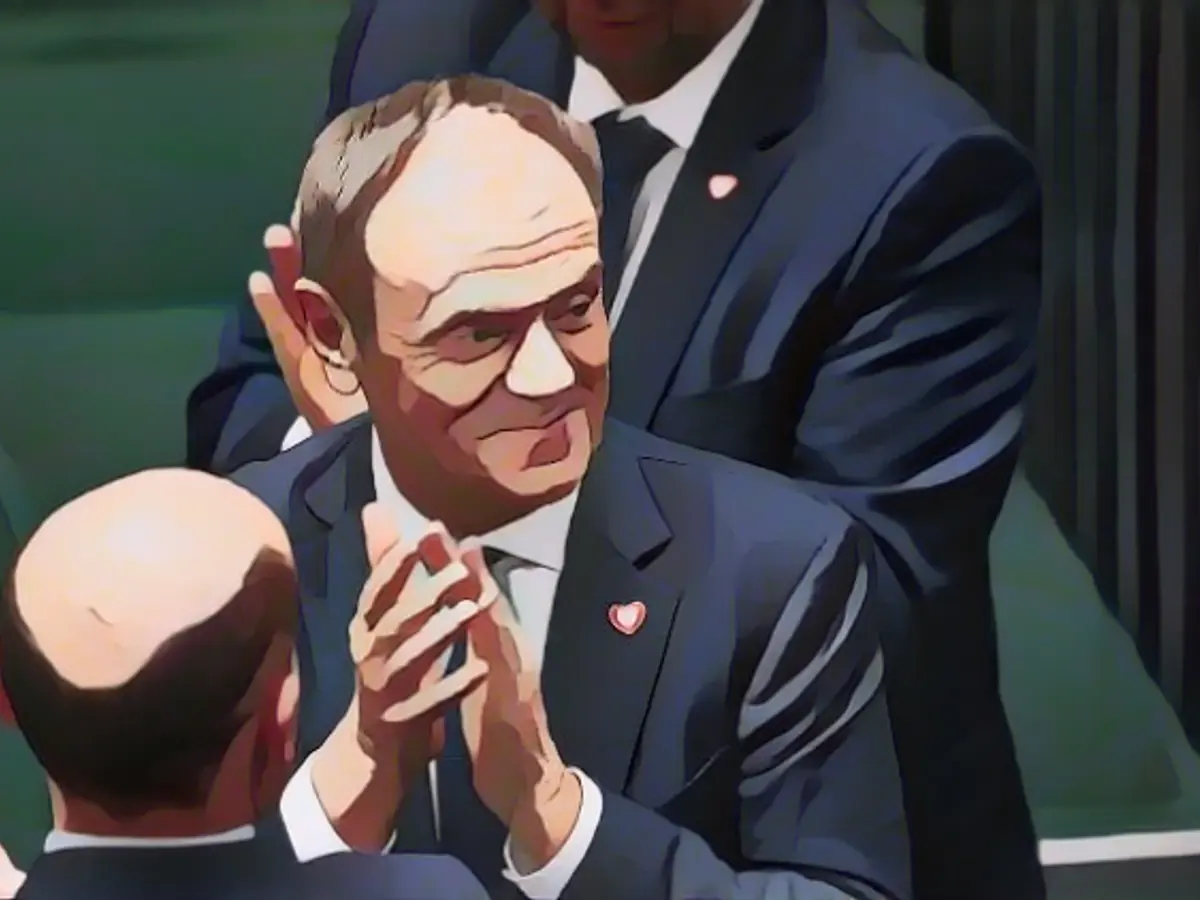Poland's Parliament Affirms Pro-European Government under Tusk
Finally, after two months, Donald Tusk's mission is accomplished. His coalition government has managed to claim victory in Poland's parliament. Given Poland's proximity to Germany, a more EU-friendly approach seems likely.
Poland's parliament has solidified its support for Tusk's pro-European government, with 248 out of 449 MPs casting their votes in favor. Meanwhile, 201 MPs voted against, and the President, Andrzej Duda, is scheduled to swear in the new cabinet members on Wednesday. In his post-election speech, Tusk emphasized the importance of upholding democratic values and cooperating effectively with the EU.
Tusk now leads a coalition government comprising his liberal-conservative Civic Coalition, the Christian-conservative Third Way, and the left-wing alliance Lewica. The trio secured a majority in the October 15 elections; however, the PiS government delayed the transition for an extended period.
The PiS government has had a long-standing dispute with the EU over judicial reforms. The EU Commission has initiated infringement proceedings against Poland and has withheld a multi-billion euro coronavirus aid fund. As a result, under Tusk's leadership, Poland aims to strengthen its position as a "leader within the EU" by fostering good relationships with other EU countries.
Unfortunately, a distressing incident marred the subsequent debate. MP Grzegorz Braun from the far-right Konfederacja party stormed into the foyer and extinguished a Hanukkah candelabra used by Jewish community representatives. Braun then announced that lighting a Hanukkah candle was an act of Satanism from the rostrum and left the foyer before chaos ensued. Parliament President Szymon Holownia subsequently expelled Braun from the session and announced plans to press charges. Tusk denounced Braun's actions as "disgraceful."
Additional Insights
The newly formed government in Poland, led by Prime Minister Donald Tusk, embodies a shift from the right-wing populist Law and Justice (PiS) party and strives for pro-European unity and solidarity. The government faces several challenges, including tending to domestic issues, such as the liberalization of abortion laws and the restoration of the rule of law, while also navigating international relations.
The new government has highlighted an economic development strategy for 2025, focusing on six pillars: investment in science, energy transformation, modern technologies, port and railway development, a dynamic capital market, and support for businesses. The total investment value is estimated to reach up to PLN 700 billion—the highest amount in Polish economic history.
Furthermore, Poland's current presidency of the Council of the European Union emphasizes security, defense, and internal challenges, with significant focus on NATO cooperation and the construction of the East Shield fortifications along the eastern border with Belarus and Russia.
Despite the government's efforts to strengthen its ties with the EU, Euroscepticism remains prevalent in Poland, with some degree of resistance to the EU's influence on Polish politics.
Source:
[1]: [2]: [3]: [4]: [5]:







